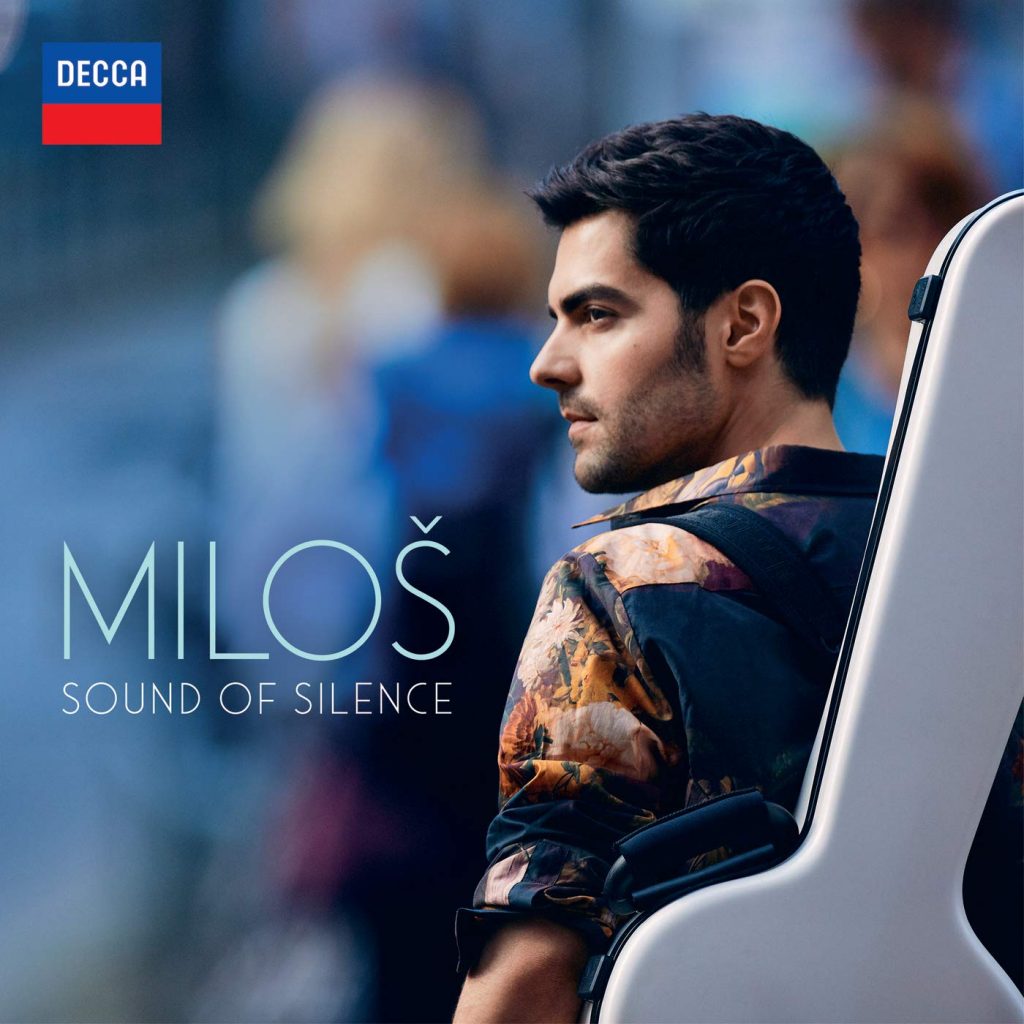SOUND OF SILENCE – MILOŠ
Richard Phillips, January 2020
Three years after suffering a devastating hand injury, Guitarist Miloš Karadaglić, returned with a new album, Sound of Silence. The Montenegrin guitarist has recorded in the past several albums drawing on rock music. His 2016 release, Blackbird, offered guitar versions of Beatles songs, for example.
But in Sound of Silence his approach to music completely deferent and much more intimate and profound. The recording, published by Decca, features meditative solo classical guitar pieces he learned long time ago and helped him excel in the music field, together with a selection of pop and jazz hits curated by Milos himself. A wide range of top artists such as Simon & Garfunkel and Leonard Cohen or Norah Jones have been reborn in phenomenal new versions for guitar and other instruments.
Guest artists include saxophonist and friend Jess Gillam who joins Miloš for two melancholic duets, as well as hang payer Manu Delago, a regular collaborator of Björk. We can find in this CD Miloš’ interpretations of songs like Portishead’s ‘Sour Times’, Radiohead’s ‘Street Spirit’ and Leonard Cohen’s ‘Famous Blue Raincoat’ as well as guitar pieces by Pujol and Tarrega.
The listeners will surely appreciate Miloš’ smoothly pulsing string pizzicatos and floating piano figurations in pieces like Portishead’s ‘Sour Times’. In other songs such as Skylar Grey’s folksy ‘Moving Mountains’ and Dido’s ‘Life for Rent’ which require more power and energy, Milos offers us a different touch deeply marked by hemiola-like patterns all wrapped up with a chamber-style setting to highlight the purity of these arrangements. Most of the chosen pop items can be labeled as alternative rock. The reason of this careful selection is not only because of its popularity, as in the Magnetic Fields’ The Book of Love, but they were picked up because they fit with the guitarist’s priorities for this recording. Their lack of sharp tonic-dominant contrasts allows Milos to bring up fine textures and arrangements for a small complement of strings and piano or saxophone alternatively.
At that point the recording makes a radical change and focus on more conventional classical guitar repertoire, carefully chosen by the artists. As he states, those are the pieces that launched his career to the public eye. Francisco Tárrega’s ‘Oremus’ and ‘Endecha’ (genuosly readapted with dancelike twist) are part of this second selection. Also, or Pujol’s ‘Milonga’. We can clearly see how at ease and confident he feels with this works, which he proved are not only part of this current repertoire, but are also part of his heart.
Decca’s sound environment, created at Abbey Road Studios, is optimal. We find ourselves in front of a crossover guitar music recording, and the pieces in general come together well, as they have allied textures and tempos. We’d highly recommend this alluring and extraordinary recording.

